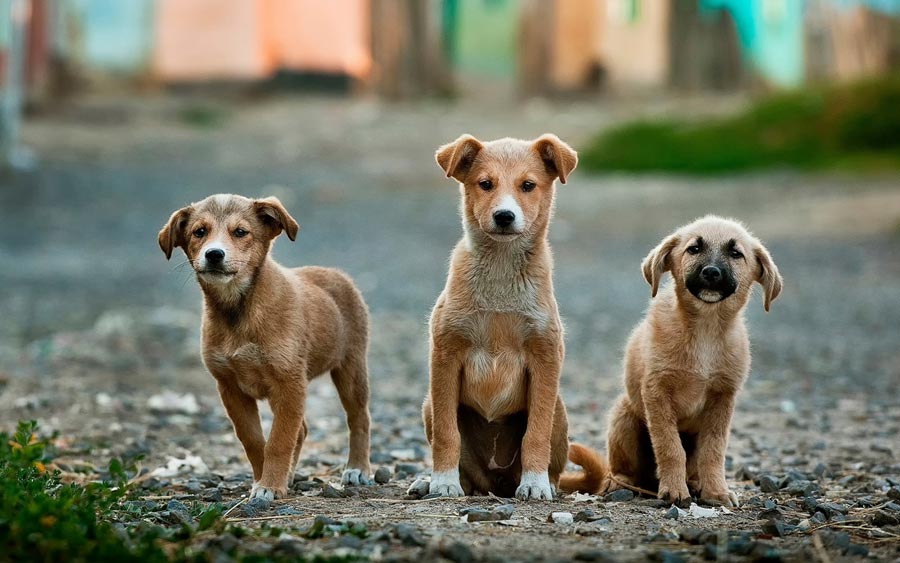Understanding people’s attitudes towards dogs, and how this can vary from country to country, is fairly new. However, these insights can be useful for pet professionals when dealing with clients.
Why explore global attitudes towards dogs? Well, aside from the fact it’s interesting to learn whether attitudes are similar or differ greatly, this knowledge can come into play in your business.
For example, in a recent post on Take Your Dog to Work Day, we mentioned the importance of checking whether fellow colleagues would feel comfortable about having a dog in the office. After all, just because you’re a dog lover, you can’t assume that everyone else in your workplace feels the same!
After reading the post a friend of mine mentioned how dogs are viewed differently by different cultures in the world. For example, in some areas of South Asia dogs are wild and are not generally kept or viewed as pets.
In fact, in some countries dogs are feared; they are considered transmitters of disease (such as rabies). So while we might think of the dog as man’s best friend, in other cultures dogs might be perceived as dirty and dangerous.
Different cultures’ varying attitudes towards dogs
As professionals working in the pet industry, it can be really useful—not to mention interesting—to learn about how other cultures view dogs.
Let’s start by looking at our own culture. Indeed, in the western world, we treat our dog like a member of the family. We hang portraits of our dogs on our walls, we let our dogs share our beds, we include our dogs in our wedding day ceremonies, and we even hold funerals for our deceased dogs. In general, we westerners love our dogs.
Islamic attitudes towards dogs
In Islamic culture, dogs are perceived as ‘ritually impure’. Apparently, the Prophet Muhammad once said that dogs may only be kept for acceptable reasons, such as farming, hunting or herding. In these instances though, the dog should be kept outside the home.
Likewise, a dog may be kept as a guard, but not as a pet. Even if a person touches a dog, they must wash the area of content several times. This is because dogs are considered unclean and impure.
Korean attitudes towards dogs
While Korea has its fair share of dog owners, Korean’s are known for seeing dogs as a commodity and a source of meat to eat. As such, many Koreans are afraid of pet dogs and believe they could attack at any moment.
According to Humane Society International, in South Korea dogs are still intensively farmed for human consumption. While there has been a shift away from dog meat consumption amongst younger Koreans, many of the older generations still eat dog meat.
In fact, Humane Society International reports, ‘older, male Koreans have the misguided belief that [dog meat] is beneficial for health when consumed as a soup or as a tonic.’
Action is currently underway by Humane Society International to phase out dog meat farms and dispel the myth that ‘meat dogs’ are different from ‘pet dogs’.

China’s attitude towards dogs
As in many cultures, in China, the attitudes towards dogs have changed over time. During the Neolithic age, more than 7,000 years ago, dogs were kept for hunting, protection and food.
However, while still used for hunting, during the Ming Dynasty well-off Chinese began keeping dogs as pets. In fact, the Pekingese became the sought-after lapdog among those in the imperial court.
Nonetheless, the lack of meat drove the Chinese to consume dog meat. Yet, when Buddhism and Islam spread throughout China eating dog became a social taboo amongst many.
In more recent times there has been a sharp rise in the number of people keeping dogs as pets and a decline in dog meat consumption. Yet while native breeds once rules supreme in terms of popularity, there is now a trend towards overseas breeds, such as Poodles, Pugs and Chihuahuas.
Indians’ attitudes towards dogs
It is thought that India has one of the highest rates of stray dogs in the world (the figure stands at around 35 million). Could this be a result of Indians’ attitudes towards dogs?
For a long time dogs have been considered as ‘carriers of disease’ in India. Every year there are approximately 20,000 cases of rabies, often amongst children who play and share food with the stray dogs.
Nowadays, these dogs are more kindly referred to as “indie-dogs” and great effort has gone into increasing people’s awareness of animal welfare.
So far, it appears to have paid off, as a growing number of people are adopting and owning dogs. Furthermore. According to a recent report in National Geographic, in the city of Bengaluru (formerly Bangalore) adopting an ‘indie’ has become the new cool.
The tendency to consider the welfare of India’s street dogs is spilling into other cities. In Mumbai and New Delhi, we are seeing a rise in pet start-ups and dog cafes, which signals the changing attitudes towards dogs.
Information sources:
- Deepa Lakshmin. The new cool: adopting street dogs is gaining popularity in India. National Geographic. April 2020. Accessed online Aug 2020.
- Humane Society International. Closing South Korea’s dog meat farms. Accessed online Aug 2020.
Latest posts by Liz Walden (see all)
- Pet health: Medicinal cannabis for pets - December 27, 2021
- What pet business insurance do I need? - November 17, 2021
- Pet sitters: how to take time off - November 15, 2021










“For example, in a recent post on Take Your Dog to Work Day, we mentioned the importance of checking whether fellow colleagues would feel comfortable about having a dog in the office. After all, just because you’re a dog lover, you can’t assume that everyone else in your workplace feels the same!”
Bravo on this sensible and fair approach, I wish every dog owner everywhere shared this mentality! I love all animals, except dogs. Actually, I’m terrified of them, encountering one gives me every strong and negative emotion -dread, sadness, fear and disgust- out there. I’m a freelancer and work remotely because there are more and more dog friendly workplaces and I know I’d immediately become the enemy for not being able to share a space with dogs. I don’t except dog people to know what I and other people with cynophobia go through. I just want them to act like mature adults instead of rolling their eyes, laughing at me or treating me like a fussy child. It’s not that hard to put some distance between a visibly scared person and the dog or angling the leash so that they are between the dog and the scared person for sure. Insisting that the dog doesn’t bite, acting annoyed or offended and pushing the dog forward won’t solve anything. A little understanding and consideration, however, can help a great deal.
Thank you for this information. I am a dog LOVER but I think that respecting others feelings and beliefs and fears are important . It’s always good to hear other people’s perspective.